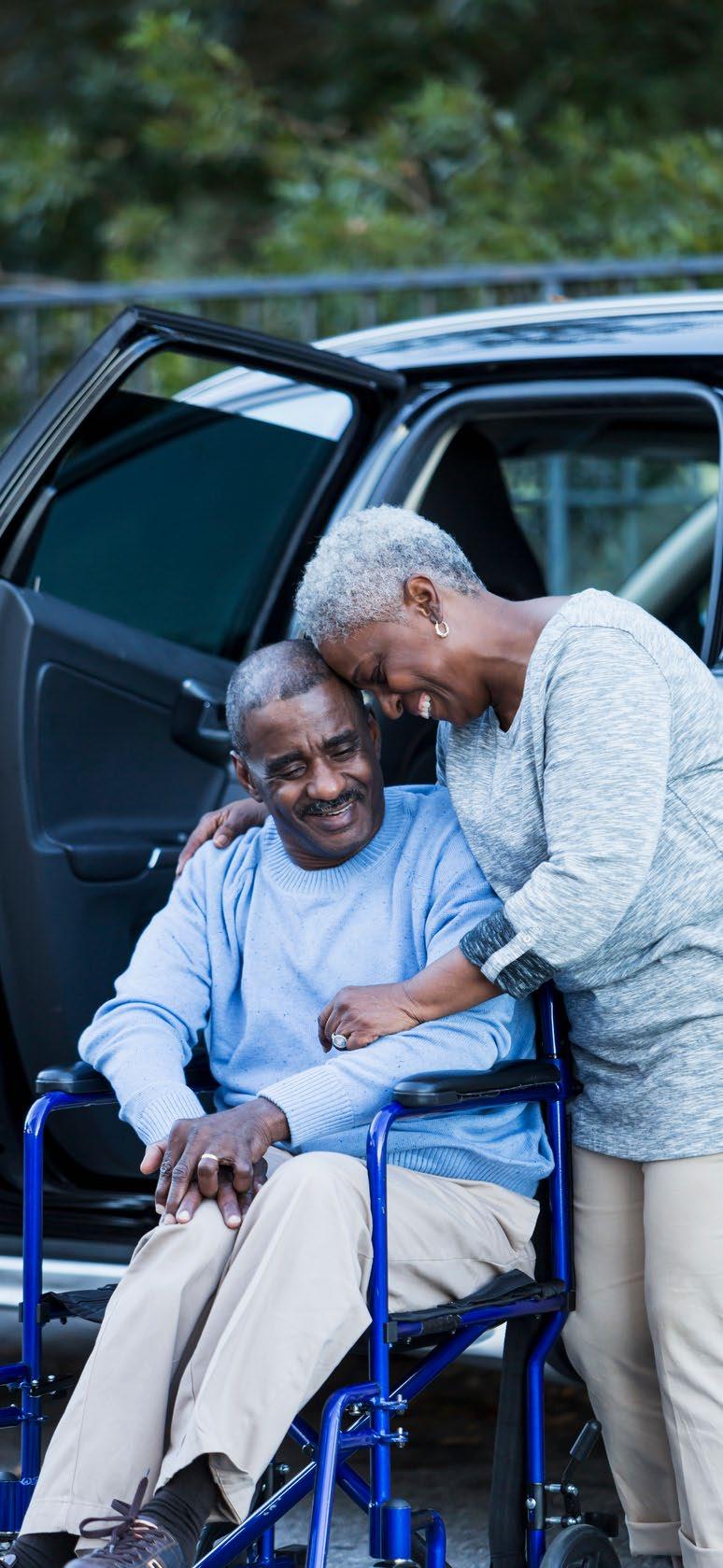
2 minute read
An Organization Built on Shared Experience
The roots of Caregiver Action Network extend back to 1991 when friends Suzanne Mintz, who was caring for her husband with multiple sclerosis, and Cindy Fowler, who was caring for her mother with Parkinson’s disease, discovered they were facing similar challenges. Realizing there must be others in the same situation, they founded the National Family Caregivers Association (NFCA) in 1993.
NFCA focused on raising awareness about the existence of family caregivers as a specific cohort within the population, as well as helping family caregivers recognize the importance of their roles. It also provided family caregivers with critical education, resource support, and “a voice,” enabling them to speak up and reach out for help when needed.
Mintz served as NFCA’s President and CEO from 1993 to 2012, during which time the organization drove major advances in family caregiving—from raising public awareness of critical issues, to developing a nationally accepted nomenclature, to improving communication between caregivers and health services providers. Working regularly with media across the nation, Congress, government agencies, and service organizations, NFCA emerged as the expert source for information on family caregivers.
As a trailblazer, NFCA’s advocacy resulted in many government agencies and health/research organizations (e.g., U.S. Department of Aging, American Heart Association, Alzheimer’s Association) caregiving concepts, such as “family caregiver” (instead of “informal caregiver”) and “lifespan caring.” Lifespan caregiving goes beyond adults caring for aging parents to the wider range of caregiving situations, such as children/youth caring for older family members, parents caring for disabled children, or people caring for woundedveteran family members.
Receiving an initial “Project of National Significance” grant from the U.S. Department of Aging, NFCA went on to train thousands of family caregivers on ways to better communicate with health providers. In 2014, working with Weber Shandwick and the Centers for Medicare and Medicaid Services, CAN inaugurated the Advancing Excellence: Best Practices in Patient and Family Engagement Recognition Program. This initiative continues to spotlight excellence in family caregiving, providing both family caregivers and health care professionals crucial insight and data on techniques that fully integrate the family caregiver and recipient of care into the health care experience.
Additional Points of Pride in the Earlier Years
• Successful Advocacy of National Family Caregivers Support Program (NFCSP). Established in 2000 and managed by the Administration for Community Living (ACL), the NFCSP provides grants to states and territories to fund a range of supports that help family caregivers keep their loved ones at home for as long as possible.
• Launch of National Family Caregiver Recognition. In 1994, NFCA began promoting the celebration of family caregivers during the week of Thanksgiving. President Clinton signed the first Presidential Proclamation in 1997 and every president since has issued an annual proclamation appreciating family caregivers. As interest in family caregiving issues has grown, the celebration has expanded throughout the entire month of November.
• Establishment of a National Volunteer Network. In 1999, NFCA started a national peer-to-peer volunteer network to combat isolation and increase awareness of resources among family caregivers.








